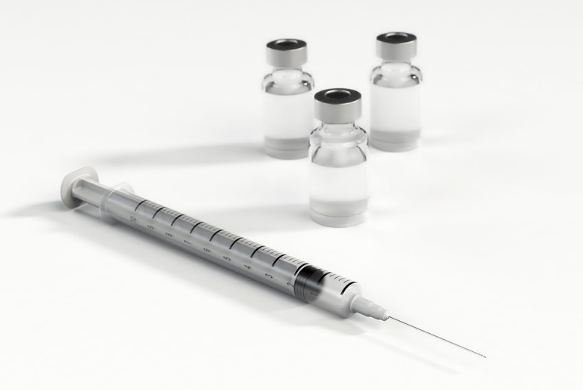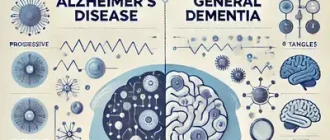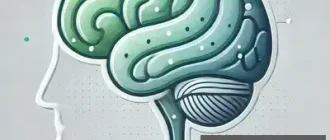As the world battles the COVID-19 pandemic, vaccines have emerged as the hopeful cure for the virus. But the race to develop vaccines has also sparked concerns about potential side effects. One of the most alarming fears is whether vaccines cause brain damage. From the Measles, Mumps, Rubella (MMR) vaccine to the Flu vaccine, there are claims that some vaccines are linked to neurological disorders like autism, seizures, and brain damage. But are these claims grounded in scientific evidence, or are they just unfounded conspiracy theories?
We will examine the available research to answer the question: Can vaccines cause brain damage?
Safety and Efficacy of Vaccines
To ensure public health and safety, vaccines are subject to rigorous testing and evaluation before being licensed for public use. Vaccines have been thoroughly studied and have been proven to be safe and effective in preventing diseases. Vaccines undergo continuous monitoring to ensure their safety. The Centers for Disease Control and Prevention (CDC) and other government agencies closely monitor vaccine adverse events to maintain vaccine safety and encourage public confidence in vaccination programs. [1][2]
Separating Vaccine Myths from Reality
To separate fact from fiction, it’s important to rely on factual data regarding vaccines and their safety. COVID-19 vaccines were given emergency use authorization or approval only after data proved they were safe and effective. Furthermore, receiving a vaccine is the best protection against COVID-19 and its potential complications, even if you’ve already had the virus. It’s important to consult with medical professionals and avoid misinformation circulating on social media. [3][4]
Vaccine Injuries: Rare but Possible Side Effects
Vaccine injuries are rare but possible side effects that can occur after vaccination. According to reports, COVID-19 vaccines have several neurological complications that range from mild to severe, depending on age, gender, disease history, and pre-existing immunity. Mild neurological effects include fatigue, muscle spasms, and joint pain, while severe complications include Bells palsy, Guillain-Barre syndrome, stroke, seizures, and demyelinating syndromes. Cerebral venous sinus thrombosis is the most dangerous neurological complication caused by COVID-19 vaccines, especially adenovirus-based vaccines. [5][6]
National Vaccine Injury Compensation Program (VICP)
To seek compensation for vaccine-related injuries, individuals can turn to the National Vaccine Injury Compensation Program (VICP). This program compensates people for certain vaccine injuries caused by a majority of vaccines in the United States. The program covers vaccines such as diphtheria, tetanus or pertussis, flu, hepatitis A and B, human papillomavirus, measles, mumps or rubella, meningococcal, pneumococcal, polio, and varicella. To file a claim, contact an experienced vaccine injury lawyer who can help navigate the claims process and gather medical records to support your case. [7][8]
Vaccine Types That Can Cause Brain Damage
To identify vaccine types that can cause brain damage, one should refer to the vaccine injury table of the National Vaccine Injury Compensation Program (VICP). According to the table, vaccines containing whole-cell or partial-cell pertussis bacteria, including DTaP, TDaP, P, and DTP-Hib, can cause brain damage with onset occurring within 72 hours post-immunization. Vaccines containing rubella virus, measles, and mumps, including MMR, MM, and MMRV, can cause brain damage with onset occurring between 5 and 15 days post-immunization. [9][10]
Encephalopathy and Encephalitis: Two Types of Brain Damage
Encephalitis and encephalopathy are two distinct conditions that affect the brain. Encephalitis is typically caused by viral infections, while encephalopathy is a result of permanent or temporary brain damage from a disease or disorder. While these conditions are extremely rare after vaccination, they can cause permanent damage to children and adults who experience vaccine-related brain damage. [11][12]
Signs and Symptoms of Brain Damage After a Vaccine
Parents should monitor their children after vaccination for signs of encephalitis, such as fever and flu-like symptoms, muscle weakness, alteration of consciousness, and seizures. Symptoms of encephalopathy in young children include decreased level of consciousness for more than 24 hours, extreme irritability, and poor muscle tone. Older children and adults may experience confusion, memory loss, trouble focusing, and seizures. Seeking immediate medical treatment is crucial to prevent permanent brain damage from vaccine-related encephalitis or encephalopathy. [13][14]
Seeking Compensation for Vaccine-Related Injuries
Individuals who believe they have been injured as a result of a covered vaccine can file a petition with the U.S. Court of Federal Claims through the National Vaccine Injury Compensation Program (VICP). The U.S. Department of Health and Human Services medical staff will review the petition and determine if it meets the medical criteria for compensation. If the petitioner is awarded compensation, the special master will determine the amount and type of compensation. The decision may be appealed, and if the petitioner rejects the decision, they may file a claim in civil court against the vaccine company and/or the healthcare provider who administered the vaccine. [15]
About the Author
Reyus Mammadli is the author of this health blog since 2008. With a background in medical and biotechnical devices, he has over 15 years of experience working with medical literature and expert guidelines from WHO, CDC, Mayo Clinic, and others. His goal is to present clear, accurate health information for everyday readers — not as a substitute for medical advice.







